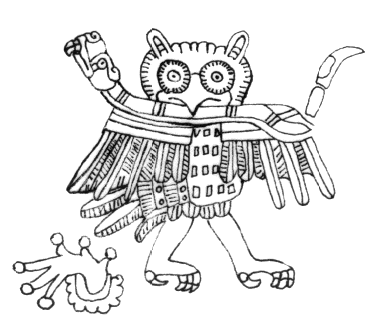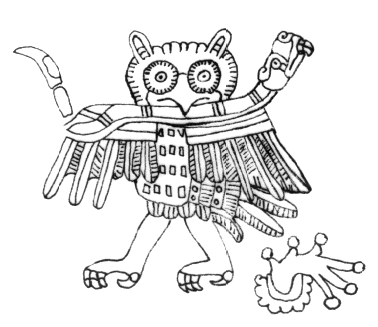Four Principles of Medical Ethics

Hippocrates Refusing the Gifts of
Artaxerxes II by Anne-Louis Girodet-Trioson
医療倫理の四原則
Four Principles of Medical Ethics

Hippocrates Refusing the Gifts of
Artaxerxes II by Anne-Louis Girodet-Trioson
池田光穂
誠実と忠誠(Veracity and Fidelity)をむねとする医療倫理(Medical Ethics)の四原理
An applied ethics approach to the examination of moral dilemmas can take many different forms but one of the most influential and most widely utilised approaches in bioethics and health care ethics is the four-principle approach developed by Tom Beauchamp and James Childress.[9] The four-principle approach, commonly termed principlism, entails consideration and application of four prima facie ethical principles: autonomy, non-maleficence, beneficence, and justice.
道徳的ジレンマの検討に対する応用倫理学的アプローチは、様々な形態をとることができるが、生命倫理学や医療倫理学において最も影響力があり、最も広く利
用されているアプローチのひとつが、トム・ビーチャム(Tom Beauchamp)とジェームス・チルドレス(James
Childress)によって開発された4原則アプローチである[9]。4原則アプローチは、一般的にプリンシプル主義と呼ばれ、自律性、非マレフィケン
ス、恩恵、正義という4つの一応の倫理原則の検討と適用を伴う(→「応用倫理学」)。
| The four principles These ethical principles can be elucidated in slightly different ways, but the explanations provided by Beauchamp and Childress can be summarised as follows.[6] 1. Respect for autonomy This principle refers to the capacity of an individual to be self-determining and to make decisions for themselves without undue pressure, coercion or other forms of persuasion. It is contrasted with the notion of paternalism which occurs when actions of a health care practitioner override or do not seek to respect the wishes of the patient, believing that they are better able to decide what is in the patient's best interests. The doctor has no right to make important decisions on behalf of competent patients, as a general principle. Even where the doctor acts in the patient's interests, it is important that the patient's own choices and wishes be respected. Respect for autonomy is operationalised through the requirement for informed consent whereby people who have the capacity for self-determination must be fully informed before being asked for their consent. 2. Beneficence This principle describes an obligation to act for the benefit of others. Acting in this way might involve preventing or removing harm, or it might involve the active promotion of some good (e.g., health). The aim of beneficent action is to produce the "best" one can out of a range of possibilities. It can involve cost/benefit analysis such that the "best" here will be the possible action in which the benefits produced maximally outweigh the costs or the risks. Put simply, it is to act always in the best interests of the patient. 3. Non-maleficence Duties of non-maleficence require us to refrain from causing deliberate harm or intentional avoidance of actions that might be expected to cause harm. Generally, obligations of non-maleficence are more stringent than obligations of beneficence, but again a cost/benefit analysis may need to be undertaken to identify the best possible action. In some situations harm may be unavoidable and then we must be sure that the benefits outweigh the harm. 4. Justice The principle of justice requires that we do what we can to ensure that costs and benefits are fairly distributed. It is possible to obey the principle of non-maleficence and the principle of beneficence, yet still not behave in an ethical manner, for these two principles say nothing about how benefits should be apportioned. In a given case it may well be that we can only procure a major benefit for some people by slightly harming the interests of others. The principle of beneficence may say we should go ahead, but then the benefits and costs would be unfairly distributed. |
4つの原則 これらの倫理原則は少しずつ異なる方法で解明することができるが、BeauchampとChildressによる説明は以下のように要約することができる [6]。 自律性の尊重 この原則は、不当な圧力や強制、その他の説得を受けることなく、個人が自己決定し、自ら意思決定を行う能力を指す。この原則は、医療従事者が患者の最善の 利益を決定することができると信じて、患者の意思を無視したり、尊重しようとしない場合に生じるパターナリズムの概念と対照的である。一般的な原則とし て、医師は有能な患者に代わって重要な決定を下す権利はない。医師が患者の利益のために行動する場合でも、患者自身の選択と希望が尊重されることが重要で ある。 自律性の尊重は、インフォームド・コンセントの要件を通じて運用され、自己決定能力のある人は、同意を求められる前に十分な説明を受けなければならない。 恩恵ある行為=善行 この原則は、他者の利益のために行動する義務について述べている。このように行動することは、危害の予防や除去を含む場合もあれば、何らかの善(例えば健 康)を積極的に促進することを含む場合もある。受益的行動の目的は、さまざまな可能性の中から「最善」のものを生み出すことである。コスト/便益分析を伴 うこともあり、その場合、「最善」とは、生み出される便益がコストやリスクを最大限に上回る可能性のある行動となる。簡単に言えば、常に患者の最善の利益 のために行動することである。 非利益主義=無危害(害を回避する)Primum non nocere 非利益義務とは、意図的な危害の発生や、危害の発生が予想される行為の意図的な回避を控えることを要求するものである。一般的に、非利益の義務は、利益の 義務よりも厳しいが、最善の行動を特定するために、費用/便益分析を行う必要がある場合もある。状況によっては危害が避けられない場合もあるが、その場合 は、利益が危害を上回ることを確認しなければならない。 正義 正義の原則は、費用と便益が公平に配分されるよう、できることを行うことを求める。この2つの原則は、利益をどのように配分すべきかについて何も述べてい ないからである。ある場合、他の人々の利益をわずかに害することによってのみ、ある人々のために大きな利益を得ることができるということもありうる。受益 性の原則に従えば、それを実行すべきとなるかもしれないが、その場合、便益とコストは不公平に配分されることになる。 |
| https://en.wikipedia.org/wiki/Principlism |
プリンシプリ
ズム |
リンク
文献
その他の情報
Do not copy and paste, but you might [re]think this message for all undergraduate students!!!


++
Copyleft,
CC, Mitzub'ixi Quq Chi'j, 1996-2099